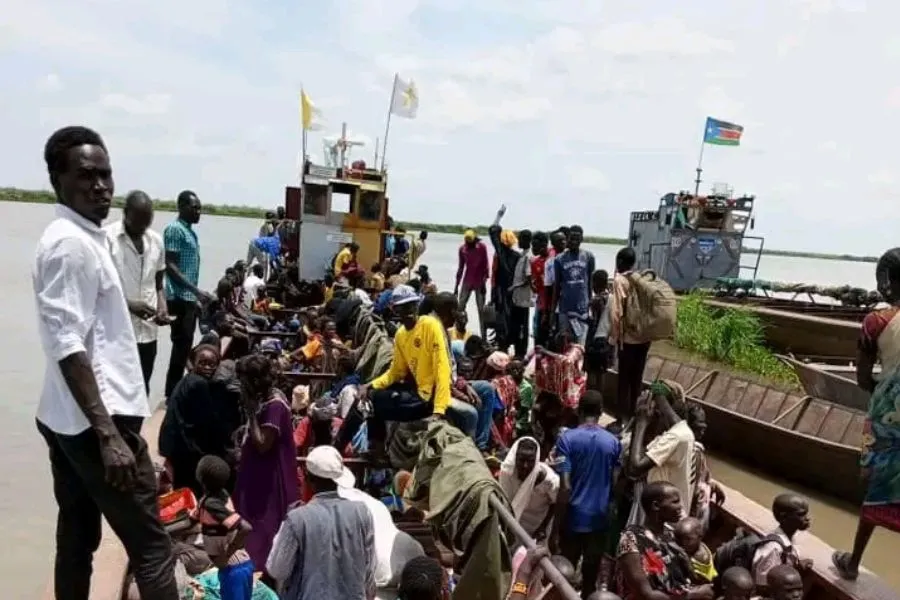The Director of the Integral Human Development of the Catholic Diocese of Malakal said that the reaching out to the South Sudanese fleeing the Sudan war by Caritas Malakal “was upon the request of the (Upper Nile) state government”.
On April 15, fighting erupted between army units loyal to General Abdel Fattah al-Burhan, who heads Sudan's transitional governing Sovereign Council, and the paramilitary Rapid Support Forces (RSF) under the leadership of General Mohamed Hamdan Daglo.
At least 528 people have repotedly been killed and 4,599 injured since the conflict began. Many more are thought to have died due to the disruption of critical services, including health care.
The United Nations High Commissioner for Refugees (UNHCR) has reportedly warned that if the Sudan war continues, over 815,000 people are likely to flee the country, “including 580,000 Sudanese refugees and 235,000 refugees from neighboring countries such as South Sudan, Ethiopia, and Chad who had settled in Sudan to find safety but are now caught up in a conflict in their host country.”
In the May 4 interview, Sr. Balatti highlighted some of the limitations in their intervention, saying, “Our contribution is limited to the Upper Nile State because we don’t have the capacity to help those who are in need to reach other states.”
The Italian-born CMS member who started her missionary service in Sudan in 1994 further said some needs are beyond the means of Caritas Malakal, and explained in reference to the oil-related areas in Upper Nile State with airport services, “Those who go to other States usually reach Paloch and look for air transport.”
“Another challenge is food for those fleeing the violence because they are forced to flee the violence abruptly; that’s why they came without food,” Sr. Balatti told ACI Africa.
She advocated for multi-agency collaboration in addressing the needs of those fleeing the Sudan war. She said, “In front of this humanitarian emergency, the cooperation of many humanitarian agencies and stakeholders is needed to help those fleeing the violence.”
On May 6, Sudan’s rival factions arrived in Saudi Arabia for direct talks, with Reuters reporting that “Sudanese are pinning their hopes on talks in Saudi Arabia between envoys of warring factions to end bloodshed that has killed hundreds and triggered a mass exodus.”
A joint statement by the US and Saudi governments, which have brought the two sides together after a number of fruitless attempts, reads in part, “The Kingdom of Saudi Arabia and the United States urge both parties to take into consideration the interests of the Sudanese nation and its people and actively engage in the talks toward a ceasefire and end to the conflict.”








